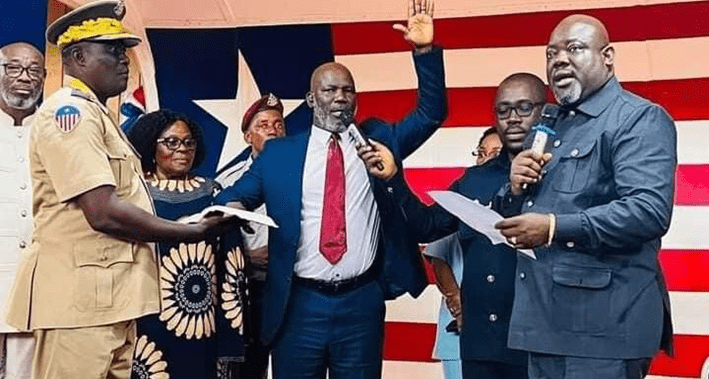The political landscape of Liberia is embroiled in a tense power struggle between the House of Representatives and the Supreme Court, stemming from the contested removal of House Speaker Koffa. Majority Bloc Leader Richard Koon, who spearheaded Koffa’s ousting, remains defiant in the face of a Supreme Court ruling that declared the removal illegal, insisting he is the rightful speaker. This standoff has escalated into a constitutional crisis, raising concerns about the separation of powers, the rule of law, and the stability of the Liberian government. The core of the conflict lies in the interpretation of the Supreme Court’s December 6, 2024 ruling and the House’s internal procedures.
Koon argues that Koffa’s removal was lawful and conducted according to the House’s internal rules and the Constitution. He insists that the required two-thirds majority of House members voted for the removal, fulfilling the constitutional threshold. He cites the 2007 Supreme Court ruling in Snowe v. House of Representatives as precedent for the House’s right to remove its speaker. Furthermore, Koon emphasizes that no motion to reconsider Koffa’s removal has been filed within the House, as required by its internal rules. Therefore, from his perspective, the Supreme Court’s ruling is an overreach of its authority, interfering in the internal affairs of the legislature and violating the principle of separation of powers.
The Supreme Court’s ruling, however, declared Koffa’s removal illegal, based on its interpretation of its earlier December decision. While the specifics of the ruling remain somewhat ambiguous, the Court seemingly found the House’s procedures in removing Koffa to be flawed. This has created a direct conflict with the House’s own interpretation of its actions, leading to the current stalemate. Koon’s refusal to acknowledge the Supreme Court’s authority further complicates the situation, threatening the delicate balance of power within the Liberian government.
While Koon and the Majority Bloc maintain that the House has continued to function normally, enacting legislation including the 2025 National Budget, the legitimacy of their actions is now under question. The Supreme Court’s ruling casts doubt on the validity of any decisions made by the House under Koon’s leadership. This has the potential to create further legal challenges and political instability. The international community, along with the Liberian public, is watching closely, seeking clarity on who holds legitimate authority within the House.
The Majority Bloc has vowed to explore all legal and political avenues to challenge the Supreme Court’s ruling, further intensifying the conflict. This could involve filing appeals, engaging in political negotiations, or even resorting to more drastic measures. The potential for the situation to escalate is a significant concern, raising the specter of a full-blown constitutional crisis. The stability of the Liberian government hinges on finding a resolution to this impasse.
The ramifications of this standoff extend beyond the immediate power struggle between the House and the Supreme Court. It raises fundamental questions about the interpretation of the Liberian Constitution, the respect for the rule of law, and the relationship between the different branches of government. The resolution of this crisis will not only determine the leadership of the House but also set a precedent for future interactions between the legislature and the judiciary. The need for dialogue, compromise, and adherence to constitutional principles is paramount to resolving this crisis and ensuring the stability of Liberia’s democratic institutions. The outcome will significantly impact the future of governance in Liberia and serve as a critical test of its democratic framework.














